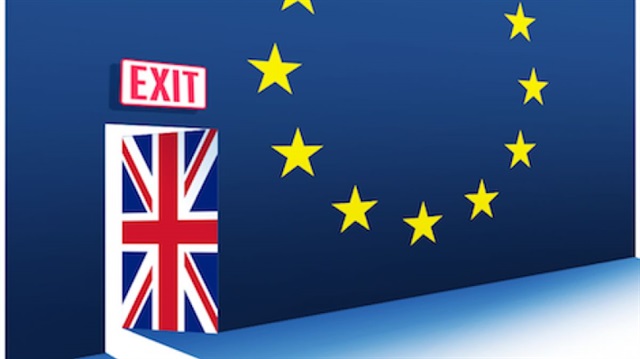
We are living in the era of the new normal where every day or at least every so often, many of the things we have taken for granted seem not to be so anymore. The new normal implies coping with the fear of terrorism whether one lives in a metropolis like Paris, Brussels or Istanbul and becoming resilient to it as the residents of Baghdad and Kabul have become over time. The new normal implies the redrawing of frontlines and battle lines on the international arena with the divide between the Russia and the West getting bigger and more problematic while the saber rattling in the South China Sea continues between China and its neighbors and, ultimately, the United States. The new normal also suggests a general malaise with governance in particular in the Western world where populism, both real and rhetorical, seems to dominate the headlines both in Europe and the United States.
The BREXIT decision of the British voters on 23 June is both symptomatic of the new normal as well as emblematic as the ruling elite overplayed its hand and lost control over the 'Eurosceptic debate' in the face of mounting opposition to Europe within the Conservative Party as it feared UKIP's growing influence in British politics. UKIP with it anti-immigrant stance capitalized on the groundswell of public resentment caused by the influx of European migrants to the country since the big bang enlargement with the accession of Central and Eastern European countries in 2004. This was compounded by the financial crash of 2008 and further fueled with Europe's ongoing migration crisis which has gained almost mythical and existentialist proportions in every European country.
In other words, Britain's governing elite ceded a major part of their powers and authority to govern within the sovereignty accorded to Parliament for a direct democracy referendum on an issue (British membership in the European Union) that British voters have never been asked to tackle directly before. All across the continent, referenda have started becoming political weapons of choice by governing elite that seem unable to handle the exigencies of their office accorded to them by their countries' constitutions. Alexis Tsipras made use of a referendum in July 2015 to decide Greece's fate within the EU (he, of course, interpreted its results as a vote to remain although the overwhelming vote was for some sort of GREXIT – thereby seriously weakening the constitutional order). Viktor Orban has called for a referendum in Hungary on 2 October on a very dubious question - "Do you want the European Union to be able to order the mandatory settlement of non-Hungarian citizens in Hungary without parliament's consent?" While calls for further referenda across Europe mount.
What does all of this mean? Basically, it suggests the perceived failure of the elite model of governance that has guided the Europe Union's member states and brought about peace and enhanced cooperation across the continent for over sixty years as it is increasingly deem to be too distant and too unrepresentative. Of course, this is not the case but perceptions are important. But there is a deeper cause as well which has to do with the lack of credible alternatives, especially among the left, to the inequalities of globalization that have spurred some of the discontent. As Dani Rodrick has recently written, the inability of the left to respond effectively to global challenges implies that “the field will be left wide open for populists and far-right groups, who will lead the world – as they always have – to deeper division and more frequent conflict.”
The failure of the governing elites, whether on the right or the left of the political spectrum, allows for the naysayers to dominate the political agenda with their preferred weapon of choices – that of pointing fingers to the other – be it the immigrant, the refugee, the governing elite. And all of this, as in the case of the United Kingdom, is one of the most progressive societies in Europe, whose biggest city, London, is run by a mayor coming from a working class British Pakistani family.
BREXIT is a par excellence example of the trap of populism and the inability to tackle it head on. As a result, the new normal also means that the OECD has had to delay the publication of its monthly economic statistics until early September, as it announced on 11 July because it needs more time to calculate the economic impact of BREXIT. In other words, BREXIT's impact is seismic both within the United Kingdom and beyond. We cannot afford to idly stand by and accept it as part of the new normal that is taking over our world.
-by Dimitri Triantaphyllou














